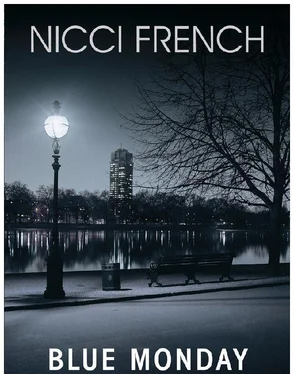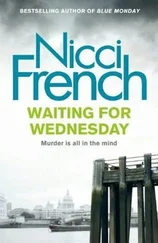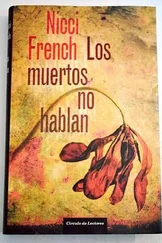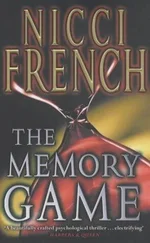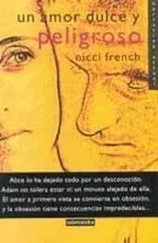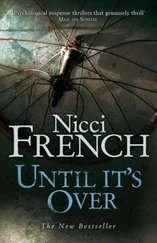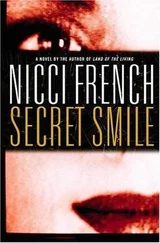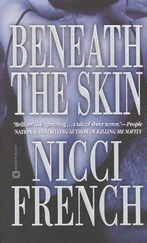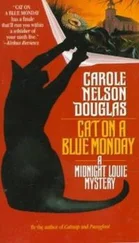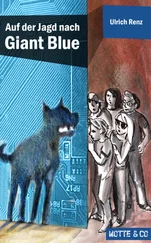At last she reached a stretch of buildings that had escaped the bombs. Frieda looked through the railings of a primary school. In the playground boys were kicking a football. To one side, a group of little girls in headscarves were giggling. She passed a factory that was closed down. A sign on the front announced redevelopment as office spaces and apartments. Then there was a pub with grimy windows and a row of houses. Every single door and window was blocked up with sheet metal, bolted to the walls. Frieda looked at her map again. She crossed the street and turned right into Brewery Road. It curved to the right so that she couldn’t see where it led, but a sign at the turning had marked it as a cul-de-sac. At the corner there were some more shops, all closed down and abandoned. Frieda read the old signs. There had been a cab firm, an electronics shop, a newsagent. There were multiple estate agent boards on the front. Leases for sale. Then there were the houses. Many were abandoned, others divided up into flats, but one of them had scaffolding on the façade. Someone had taken the plunge. After all, it was only a few minutes from the Isle of Dogs. In ten years, they would all have been renovated and there would be a restaurant and a gastropub in the road.
He pushed his face against the glass. Skeletons of snow fell in the lost world. Her hair was black and he couldn’t see her face. He knew she wasn’t real. There weren’t people like that any more. Small and clean like a dancer on a music box who turns and turns if you wind the key. Once there was a woman with long red hair who called him honey-bunch. When he had been Matthew, before he lost her hand.
If she looked up, would she see his face? But it wasn’t his face any more. It was Simon’s face and Simon belonged to someone else.
The dancer disappeared. He heard the bell ringing.
She reached number seventeen, the address on her piece of paper. It had, in its own way, been done up. The front door was painted a dark glossy green. A Georgian-style architrave had been built over it. The window frames on the front of the house were all gleaming new aluminium. The little garden wall had fragments of broken glass cemented along the top, like a warning. What was she going to say? What, really, was she trying to find out? Frieda felt that if she started to think about it, she would just stop and leave. So she didn’t think. She pressed the doorbell and heard the chime inside. She waited and pressed the bell and listened.
Nothing, she said to herself, but immediately it was clear that there was something. She heard a sound inside, which turned into footsteps. The door swung inwards. A woman was standing there, blocking the entrance. She was large and pale and fat, and her fatness was emphasized by the black T-shirt that was too small for her and by the black leggings that reached only halfway down her calves. She had a tattoo, like a purple braid, around her upper left arm and another – a bird, a canary perhaps, Frieda thought – on her forearm. Her blonde hair had dark roots and she had blue makeup around her pouchy eyes, lipstick that was so purple it was almost black, like a bruise. She was smoking a cigarette and she tapped the ash on the doorstep, so that Frieda had to step to one side to avoid it. It made Frieda think of being a girl and going to the fair, the dangerous rickety fair that she remembered from when she was very little and that probably wouldn’t be allowed nowadays. The eight-year-old Frieda had handed her fifty pence to women like her, sitting in glass booths at the entrance to the haunted house or the dodgems.
‘What do you want?’
‘I’m sorry to disturb you,’ she said. ‘Does Dean Reeve live here?’
‘Why?’
‘I just wanted to have a quick word.’
‘He’s not here,’ said the woman, not moving.
‘But he lives here?’
‘Who wants to know?’
‘I just want a word with him,’ said Frieda. ‘It’s to do with a friend of a friend. It’s not a big deal.’
‘Is this about a job?’ said the woman. ‘Has something gone wrong?’
‘Not at all,’ said Frieda, trying to sound reassuring. ‘I just want a quick word. It’ll only take a minute. Do you know when he’ll be back?’
‘He just popped out,’ said the woman.
‘Could I wait for him?’
‘I don’t let strangers in my house.’
‘Just a couple of minutes, please,’ said Frieda, firmly, and stepped up to the woman, almost touching her. She was more than ever aware of her bulk and her hostility. Behind her, the house was dark and smelt with an odd sweetness she couldn’t quite identify.
‘What do you want with Dean?’ The woman sounded angry and also frightened. Her voice rose slightly.
‘I’m a doctor,’ said Frieda, and with that she was into the warmth of the narrow hallway. It was painted a dark red, so that it felt even narrower than it was.
‘What sort of doctor?’
‘Nothing to worry about,’ said Frieda, crisply. ‘Just routine. It won’t take a moment.’ She tried to make herself sound more confident than she felt. The woman pushed the front door and it shut with a click.
She looked around and gave a start. On a small ledge above a doorway to the left, there was a small stuffed bird, some sort of hawk, with its wings outstretched.
‘Dean got it from a shop round the corner. Got it cheap. You can’t give them away now. Gives me the creeps.’
Frieda stepped through the door into the front room. It was dominated by a large-screen television, amplifiers and speakers, joined with a complicated array of wires. DVDs were piled on the floor. The front curtains were closed. The only furniture was a sofa facing the room and, on the far wall, an enormous chest of miniature drawers.
‘That’s unusual,’ said Frieda.
The woman stubbed out her cigarette on the mantelpiece and lit another one. Her nails were painted but Frieda could see the yellow around the tips. Her finger had swollen around the large gold wedding ring on her fourth finger.
‘He got it from the reclamation place. It’s from one of those old clothes shops. Those drawers were for little things, like socks or balls of wool. Dean uses it for his tools and bits and pieces, you know, fuses, screws, rulers. Stuff for his models.’
Frieda smiled. The woman seemed happy enough to have someone to talk to, although there were beads of sweat on her large forehead and her eyes were darting around nervously, as though she expected someone to step into the room at any minute.
‘What does he make?’
‘He makes these boats. Real proper miniatures. He takes them over to the ponds and gives them a runaround.’
Frieda looked about as if she were searching for something. She had an odd feeling she couldn’t quite place. As if she had been here before, like a dream that receded the more she tried to capture it. A thin tortoiseshell cat stepped delicately into the room and wound itself around her ankles, and as she bent down to stroke it, another one entered. It was large and a matted grey with giant fur balls hanging off its coat. She stepped back. She didn’t want to touch it. She saw two more cats entwined in the corner of the sofa. That was the smell: cat litter and cat shit and air freshener.
‘How many cats have you got?’
The woman shrugged.
‘They come and go.’
He lay on the floor with his ear to the wood and listened to the voices. The one he knew, and the other one. Soft, clear, a stream running through him. It would take away the dirt. He was a dirty boy. Wash his mouth out. He had no idea. Didn’t deserve. Should be ashamed. Filthy.
‘My name’s Frieda.’ She spoke slowly, feeling as though she had stepped into a looking-glass world. ‘Frieda Klein.’ Then, when the woman didn’t answer, she said, ‘Who are you?’
Читать дальше
